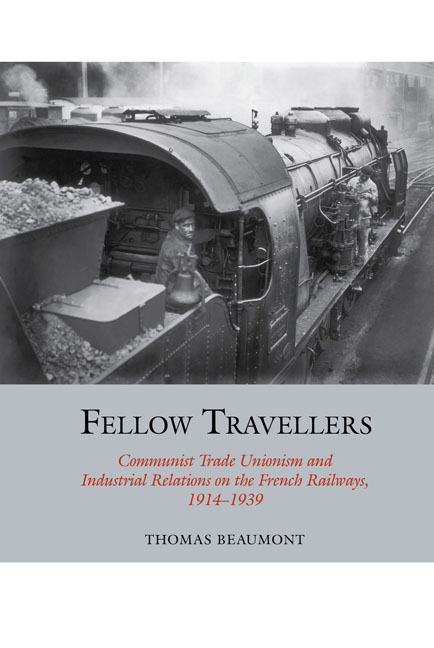 Fellow Travellers
Fellow Travellers The collapse of the May strike had a profound and lasting impact upon the cheminot community. Individually, many workers experienced the loss of their job, prospects and security as a traumatic event. There were reports of suicides among the workers in the days and weeks following the termination of the strike. The cheminots’ defeat led to a general sense of disillusionment and many turned away from the union and from political activity. Yet, for large numbers of railway workers, defeat turned to anger. This targeted for the most part the reformist CGT leadership, who, it was alleged, had betrayed the workers throughout 1920. This anger led first to the schism within the railway Federation, as the minoritaires under Gaston Monmousseau and Pierre Semard wrested control of the union away from the supporters of Maurice Bidegaray. This was soon followed by an analogous schism within the wider CGT as the minoritaires split with the reformists and went on to form a new organisation, the CGTU.
The new ‘unitaires’, however, were soon themselves divided over the relationship the new confederation should pursue with the Bolsheviks in Moscow, and with the newly created French Communist Party at home. While Moscow's supporters argued for adherence to the new Bolshevik International, anarcho-syndicalists rejected Moscow's overtures and any submission of the union movement to a political party. These debates continue to animate historical discussion. In her seminal thesis published in the 1960s, Annie Kriegel emphasised the significance of this moment as would-be revolutionaries turned away from the traditions of French syndicalism and towards an embrace of Russian-style Bolshevism. This interpretation has since been challenged, most notably in the work of Kathryn Amdur, who emphasised the continuing significance of a distinctive revolutionary syndicalist current within French communism at least down to 1924, as well as the continued legacy of revolutionary syndicalist thinking and practice outside of the communist movement beyond this date. Most recently, Ralph Darlington's wide-ranging comparative study of working-class political activism has rejected the thesis of a clear rupture between revolutionary syndicalism on the one hand, and communism on the other hand. Instead, Darlington has explored how the immediate post-war period and the early 1920s saw a process of rapprochement between the two political cultures, with former syndicalists moving towards the Bolshevik position, and the communist leadership in turn accommodating themselves to key elements within revolutionary syndicalism.
To save this book to your Kindle, first ensure no-reply@cambridge.org is added to your Approved Personal Document E-mail List under your Personal Document Settings on the Manage Your Content and Devices page of your Amazon account. Then enter the ‘name’ part of your Kindle email address below. Find out more about saving to your Kindle.
Note you can select to save to either the @free.kindle.com or @kindle.com variations. ‘@free.kindle.com’ emails are free but can only be saved to your device when it is connected to wi-fi. ‘@kindle.com’ emails can be delivered even when you are not connected to wi-fi, but note that service fees apply.
Find out more about the Kindle Personal Document Service.
To save content items to your account, please confirm that you agree to abide by our usage policies. If this is the first time you use this feature, you will be asked to authorise Cambridge Core to connect with your account. Find out more about saving content to Dropbox.
To save content items to your account, please confirm that you agree to abide by our usage policies. If this is the first time you use this feature, you will be asked to authorise Cambridge Core to connect with your account. Find out more about saving content to Google Drive.